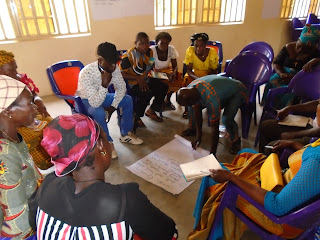ICAD ATTENDED THE EVENT: “VOICE OF WOMEN”:
TELLING STORIES OF INSPIRING WOMEN LEADERS BY AFRICAN INTERNATIONAL DOCUMENTARY
FESTIVAL FOUNDATION AND CONVERSATION FOR CHANGE
ABUJA NIGERIA, 14TH FEBRUARY 2020
The voice of Women is a program deliberately put together by the African International Documentary Festival foundation, Conversation for Change and other collaborating partners such as the Ministry of Women affairs, International Center for Accelerated Development and Di Kwadolu Indigenous Women and the African Union ECOSOCC to advance the cause of the woman in Nigeria in particular and Africa in general.
It has been discussed in different fora how women had been suffering neglect over the years in different aspect of life endeavour and have come to the realization that no one will ease their sufferings should they fail to deliberately act and take measures that will better their lot.
The program is intended to identify the achievements of women in Nigeria and their contemporaries in Africa, speak to growing women about career path and mentorship. Women who have made it to the echelon of their career are believed to be in a better position to give direction and mentorship to upcoming young women and the indigenous women.
The ‘Voice of Women” project is to bring the
realization that older women who have made it in society should provide voice
for the rest of the women with special focus on – indigenous women, women with
special needs, physically challenged women and girls, and women generally that are opting for
carrier change. The invited speakers are high societal women occupying
positions of authority in government, private sector and the NGOs; they are in
a better place to provide guidance and voice to the rest of the women.





